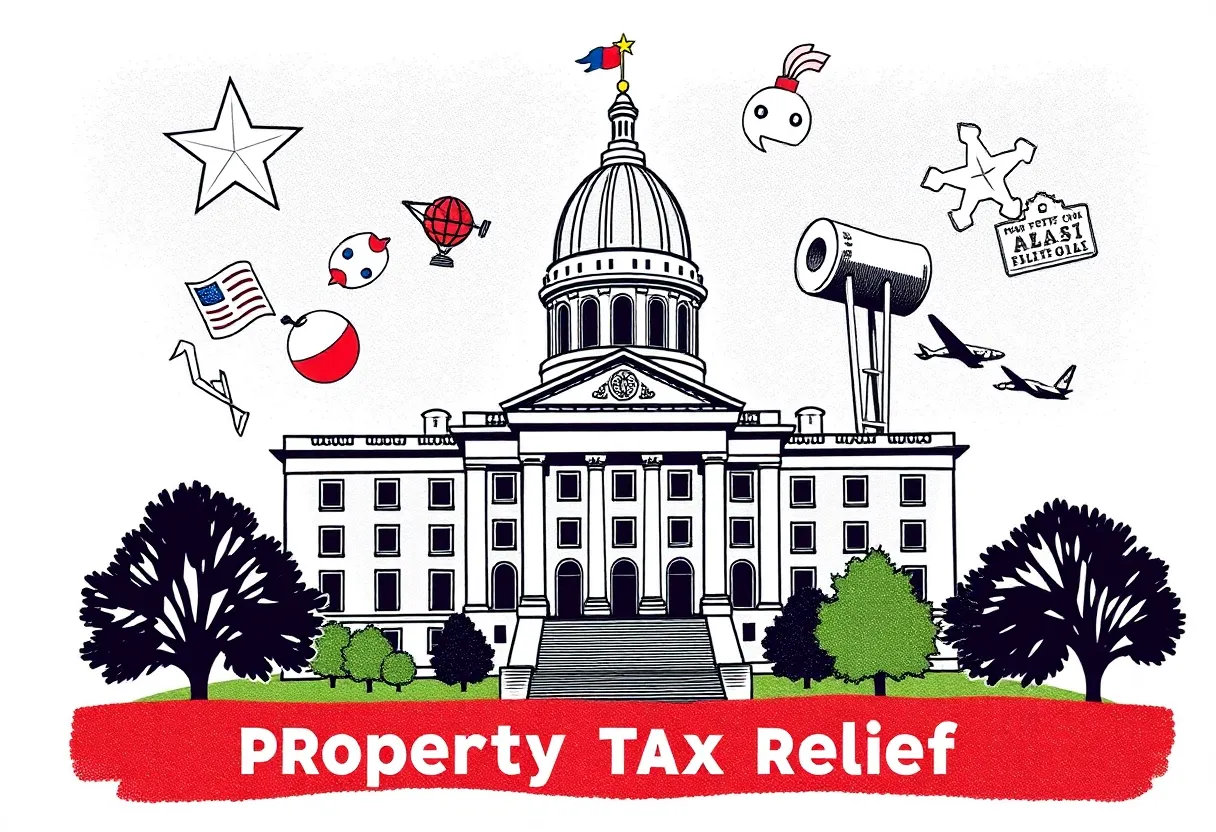News Summary
The Texas Senate has approved a bill aimed at reducing property taxes for business owners, allowing them to exempt up to $125,000 of inventory from taxation. This legislative effort, part of a broader property tax relief package, is intended to ease the financial burden on local businesses and homeowners. As the bill awaits final approval, it promises significant savings for both groups, alongside potential concerns for local government funding.
Texas lawmakers have advanced a significant bill that aims to provide increased property tax relief for businesses and homeowners alike. The Texas Senate unanimously approved the measure on May 15, 2025, which is designed to exempt a larger portion of business inventory from property taxes. This legislative move could have substantial implications for both local businesses and homeowners across the state.
Known as House Bill 9, the legislation, authored by state Rep. Morgan Meyer, proposes an exemption of up to $125,000 for business inventory from taxation. Currently, Texas only exempts business inventory valued at $2,500 or less, making it one of the few states in the U.S. that taxes this form of property. The Senate’s approval of the bill follows a previous endorsement by the Texas House in April, indicating bipartisan support for the tax relief proposals.
Before the bill can be enacted, it must undergo a second vote in the House due to amendments made during the Senate’s review. If ultimately approved, it will be passed on to Governor Greg Abbott for final approval. This piece of legislation is a crucial part of a broader package aimed at reducing property taxes in Texas, encompassing enhancements to homeowner tax breaks as well.
One of the major components of the property tax relief package is a proposed increase in the homestead exemption from $100,000 to $140,000. Additional considerations in the proposal aim to provide further tax breaks for elderly residents and individuals with disabilities, encouraging greater financial support for these vulnerable populations. The push for this expansive property tax reform is a priority for key legislative figures, including House Speaker Dustin Burrows and Lt. Gov. Dan Patrick.
Initially, Rep. Meyer sought a significantly higher exemption limit of $250,000 for business personal property. However, negotiations between Senate lawmakers resulted in a compromise that settled on the current $125,000 figure. The changes to property tax regulations could yield average savings of approximately $500 for Texas homeowners, while older homeowners and those with disabilities could expect savings nearing $950 annually. Businesses, on the other hand, could see tax reductions potentially totaling $2,500 each year with the new exemption in place.
The Texas legislature anticipates that these changes will move forward before the end of the current session on June 2, 2025. However, for the benefits to become permanent, a public vote is scheduled for November, which will require amending the Texas Constitution. This step is crucial for securing the long-term financial relief outlined in the new proposals.
Despite the potential benefits, the proposed tax relief measures have raised concerns among local government officials. There are apprehensions regarding the long-term impact on funding for essential local services, including police and fire protection, which rely heavily on property tax revenue. The reduction in tax revenue may result in financial strains for cities and counties, necessitating budget adjustments in response to the diminished income.
As Texas moves forward with these significant changes to property taxation, it remains essential to consider both the advantages for homeowners and businesses as well as the potential challenges facing local governments. The balance between tax relief and adequate funding for community services will be a vital topic of discussion in the coming months.
Deeper Dive: News & Info About This Topic
- Denton Record-Chronicle
- Wikipedia: Property Tax
- CBS News
- Google Search: Texas Property Taxes
- News-Journal
- Encyclopedia Britannica: Revenue
- Community Impact
- Google News: Texas Tax Breaks
- Governing
Author: STAFF HERE GEORGETOWN
The GEORGETOWN STAFF WRITER represents the experienced team at HEREgeorgetown.com, your go-to source for actionable local news and information in Georgetown, Williamson County, and beyond. Specializing in "news you can use," we cover essential topics like product reviews for personal and business needs, local business directories, politics, real estate trends, neighborhood insights, and state news affecting the area—with deep expertise drawn from years of dedicated reporting and strong community input, including local press releases and business updates. We deliver top reporting on high-value events such as the Red Poppy Festival, Georgetown Swirl, and Christmas Stroll. Our coverage extends to key organizations like the Georgetown Chamber of Commerce and the Downtown Georgetown Association, plus leading businesses in manufacturing and tourism that power the local economy such as local wineries and historic downtown shops. As part of the broader HERE network, including HEREaustin.com, HEREcollegestation.com, HEREdallas.com, HEREhouston.com, HEREgeorgetown.com, and HEREsanantonio.com, we provide comprehensive, credible insights into Texas's dynamic landscape.






